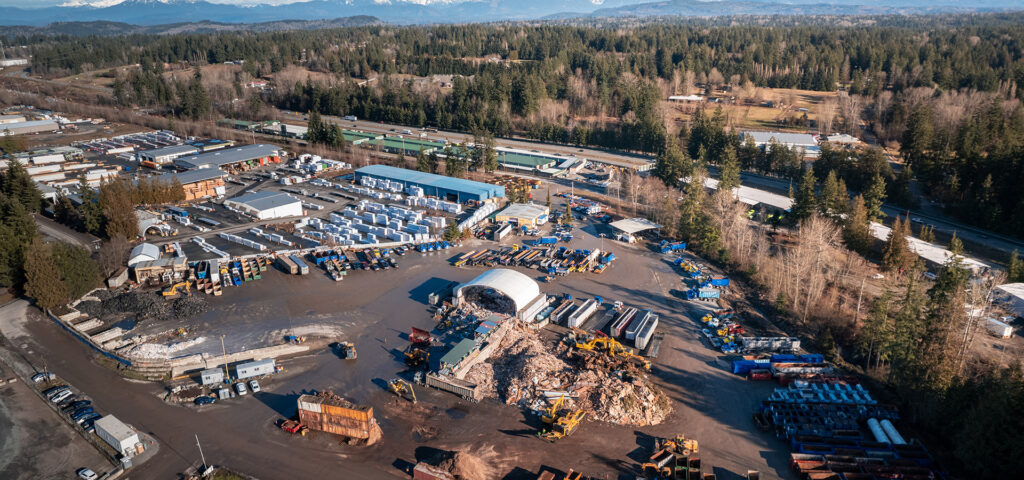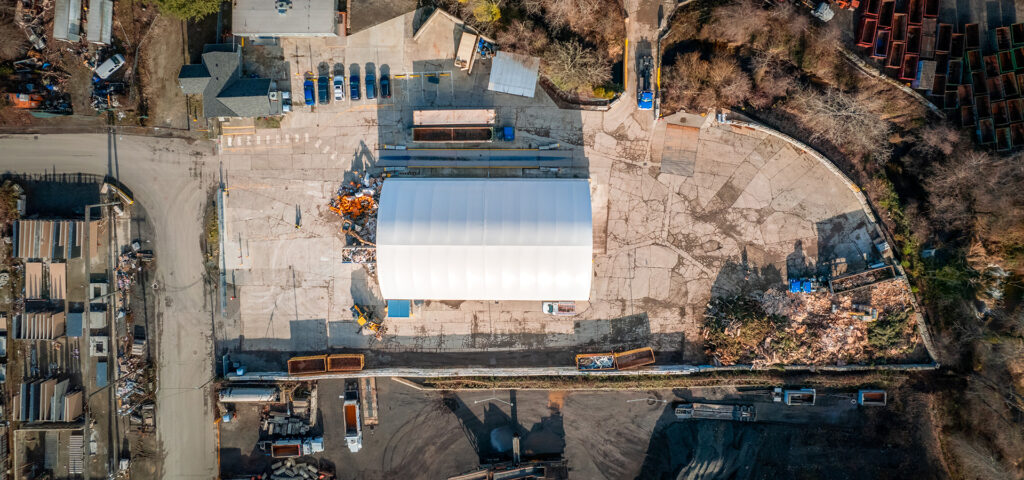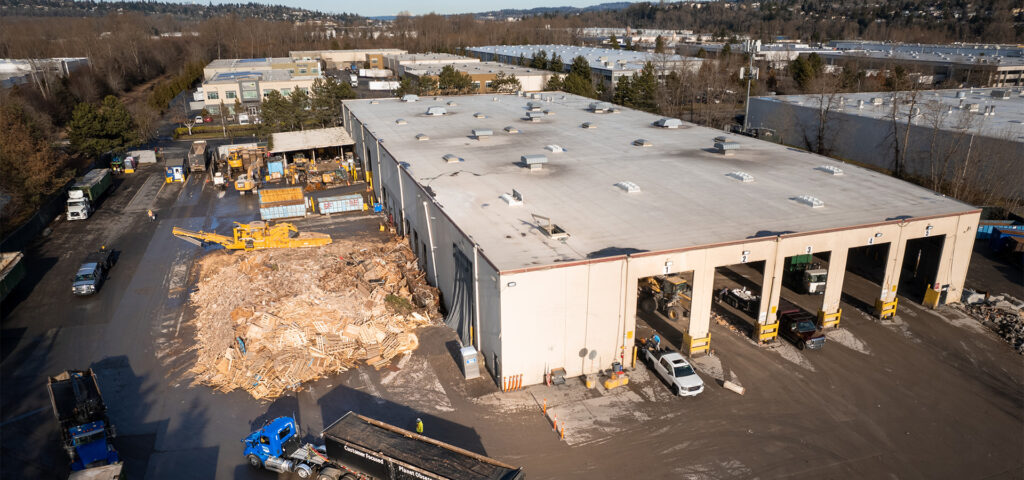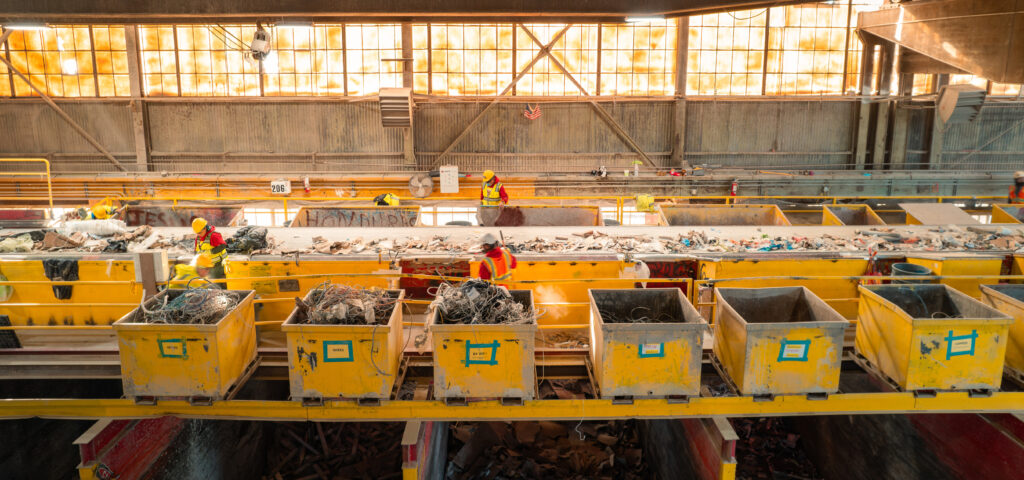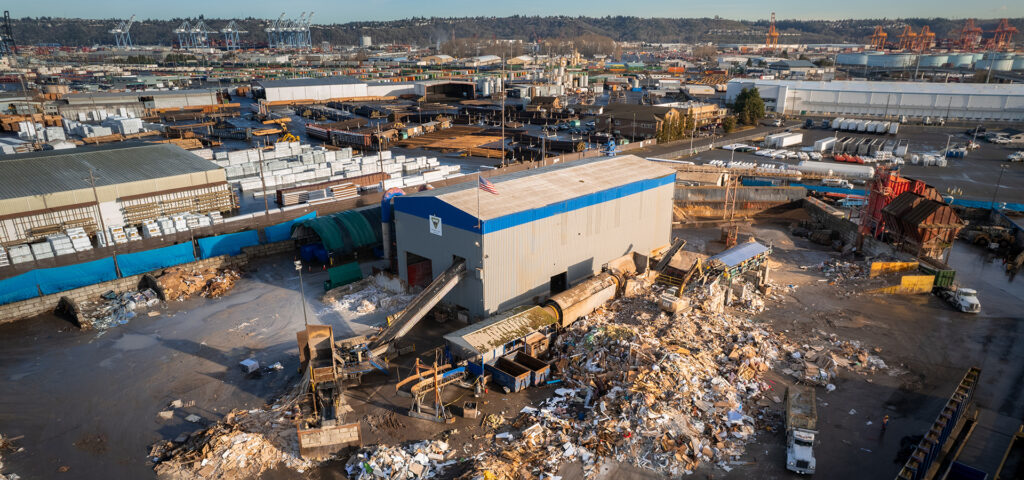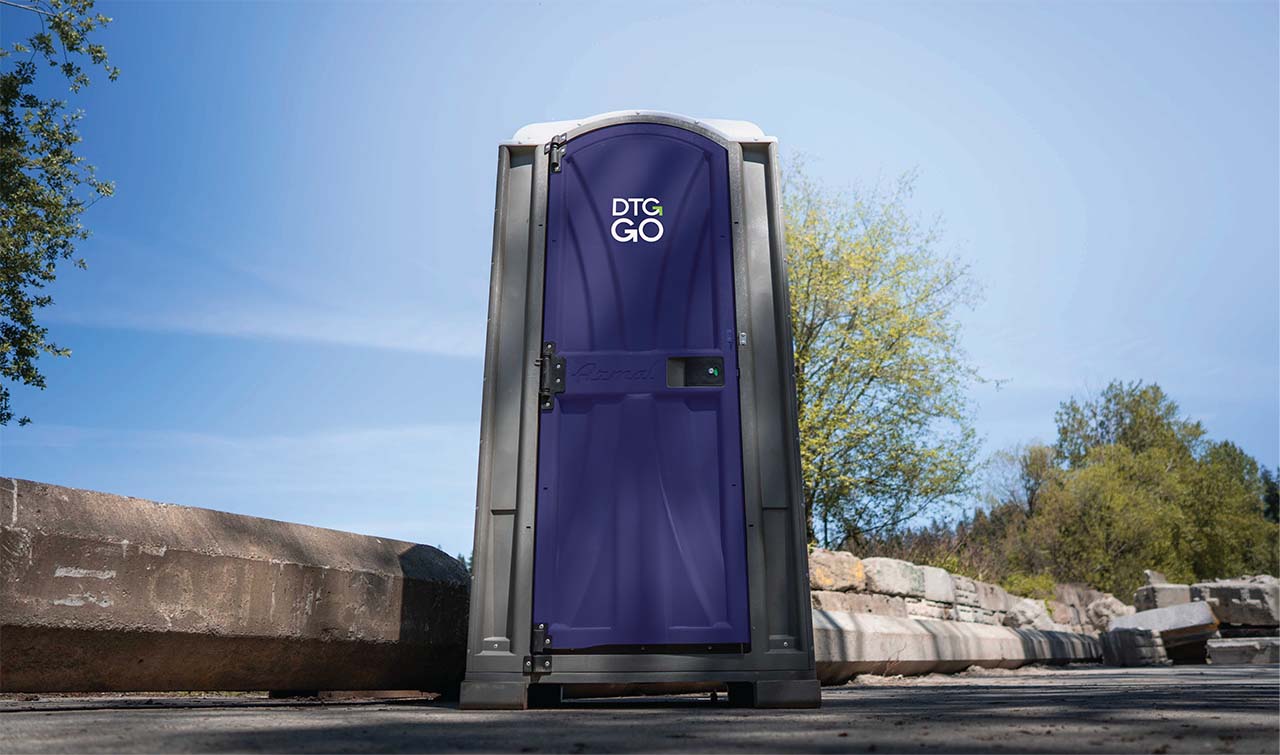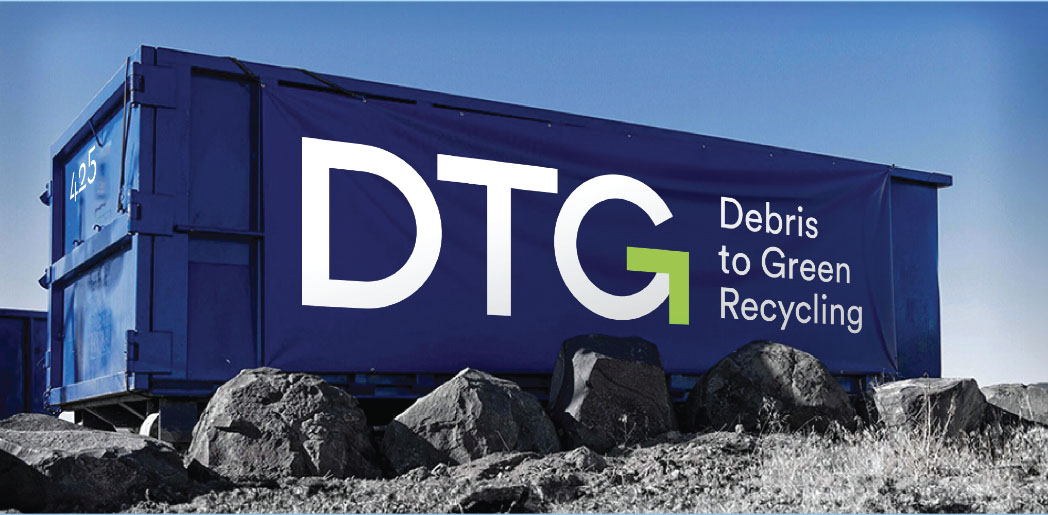Drywall Scrapping Services and Recycling Center
Want to Recycle Your Old Gypsum Board? We got you covered!
At DTG Recycle, we utilize advanced sorting technologies to recognize and efficiently sort materials. DTG Recycle has Drywall Recycling Centers all over Washington State. You may also drop off your old drywalls or Sheetrock at our locations.
Thanks to over 2 decades of experience in the debris management and Drywall recycling industry, we at DTG Recycle provide exceptional integrated services that make it easier for our customers to recycle and quantify their impact. Currently, we use recycled gypsum as a soil amendment for the agricultural market for farms, including apples, potatoes, and cherries, as well as mixing it with topsoil and manure for compost.
We also offer a drywall papering service, where we will lay down protective brown paper on the floors after we pick up the drywall to protect the floors from drywall mud, dust, and paint. We take a full service, concierge approach with this service and work with you on a customized plan and schedule specific to each job or location you have. We will always keep your job site’s cleanliness, appearance, and safety at the top of our priorities.
How to Dispose of Drywall for Recycling?
Burning drywall in a fire pit is not recommended. Drywall should not be put in the recycling bin either. To get rid of drywall, consider utilizing specialized drywall recycling services. They offer collection, removal, and drop-off options for heavy drywall materials. Contact DTG Recycle for drywall recycling services for pickup or find designated drop-off locations for proper disposal and recycling. You can also rent a dumpster from us for your drywall disposal.
What are the Things to Consider Before Recycling Drywall?
Before removing older drywall, it is crucial to consider two important factors. Firstly, structures constructed before 1978 may contain asbestos in the joint compound used to seal the gaps between drywall sheets. Asbestos exposure, even in small amounts, can lead to lung cancer. It is necessary to hire a qualified removal company that can handle hazardous materials and dispose of it properly if there is suspicion of asbestos in the drywall.
Secondly, older walls might have layers of lead-based paint, which is also hazardous. Careful precautions should be taken when removing and disposing of lead-based paint as inhaling fine particles can result in various health issues, including high blood pressure and nerve disorders.
How to Recycle Drywall?
Recycling drywall helps to maintain a clean, natural environment. The Sheetrock recycling process is described in the following steps.
1. Collecting Old Drywall
The first step in recycling drywall involves collecting old drywall materials. This can be done through various means, such as construction and demolition debris management companies, recycling centers, or specialized drywall recycling services. Drywall may come from new construction, demolition sites, or renovation projects.
2. Grinding and Removing Contaminants
Once the drywall is collected, it undergoes a grinding process to break it down into smaller pieces. This grinding helps in removing contaminants such as nails, screws, or other debris that may be embedded in the drywall. Contaminants are typically separated from the drywall material to ensure a purer recycling process.
3. Separating Paper from Gypsum
Drywall is composed of gypsum (calcium sulfate) encased in paper. The next step involves separating the paper from the gypsum. This can be achieved through a variety of methods, including mechanical processes or air separation techniques. The separated paper and gypsum can then be further processed independently.
4. Grounding Gypsum into Powder or Pellets
The gypsum component of the drywall is ground into a fine powder or transformed into pellets. This grinding process increases the surface area of the gypsum, making it more suitable for various applications in the recycling and manufacturing industries. The resulting gypsum powder or pellets can be used in the production of new drywall, cement, soil amendments, or other gypsum-based products.
5. Transporting to Manufacturers
Once the drywall materials have been processed and transformed, they are transported to manufacturers who can utilize the recycled gypsum in their production processes. The transportation may involve coordinating with recycling facilities, debris management companies, or manufacturers themselves to ensure the efficient delivery of recycled drywall materials.
Why Recycle Sheetrock aka Drywall?
Here are the reasons to recycle sheetrock:
- Reduce landfill debris
- Conservation of resources
- Energy savings
- Environmental benefits
- Cost savings
- Promoting sustainability
- Contribution to LEED certification for green building projects
- Job creation
What are the Uses of Recycled Drywall?
- Manufacturing new drywall
- Producing cement
- Soil amendments
- Animal bedding
- Manufacturing gypsum-based products
- Land reclamation projects
- Agriculture and gardening applications
- Composting
- Construction fill material
- Roadbed material
Statistics on Drywall Recycling
Recycled gypsum board are repurposed into the following…
Due to the increase in construction projects, there is a considerable rise in volume from builders and drywall installers. USA Gypsum has been recycling new gypsum drywall trim scraps for 24 years, using them to make closed loop wallboard, Portland cement, and agricultural purposes. Approximately 10% of the 42 million metric tons provided are used to make Portland cement, 36% are used for agricultural and other purposes, and 53% are used to make wallboard and plaster. 1
After recycling, Sheetrock consists of 93% gypsum and 6% paper
The drywall or Sheetrock must first be grounded in order to be recycled. After recycling, the material contents are reclaimed, which consisted of about 93% gypsum powder and 6% shredded paper. 2
FAQs for Drywall Recycling
Where can I recycle drywall?
Drywall can be recycled at most recycling centers, as well as at curbside pickup programs in many areas. Check with your local recycling program for specific guidelines on how to recycle drywall in your area.
Can I make money by recycling drywall?
Recycling drywall can potentially generate income, but the profitability can vary depending on several factors. Here are some considerations:
- Market Demand – The demand for recycled gypsum can fluctuate depending on the region and market conditions. It’s essential to research and assess the demand for recycled drywall in your specific area. This can be influenced by factors such as construction activity, local regulations, and the availability of recycling facilities.
- Recycling Costs – The cost associated with recycling drywall, including transportation, processing, and sorting, should be considered. These costs can impact the profitability of the recycling operation.
- Recycling Infrastructure – The availability of recycling facilities and their proximity to your location can affect the feasibility and profitability of drywall recycling. If recycling facilities are scarce or far away, transportation costs may increase, impacting potential earnings.
- Volume and Scale – The volume of drywall you can recycle and the scale of your recycling operation will influence the potential income. Larger quantities are generally more attractive to recycling facilities and may lead to better financial returns.
- Local Regulations and Incentives – Some regions may have regulations or incentives in place to promote drywall recycling. These can include debris diversion targets, landfill bans, or financial incentives for recycling. Understanding the local regulatory framework and potential incentives can impact the financial viability of your recycling efforts.
How many times can drywall be recycled?
Drywall, also known as gypsum board or plasterboard, can be recycled multiple times. The exact number of times it can be recycled depends on various factors, such as the quality of the drywall, the recycling process, and the specific recycling facility.
In general, drywall can be recycled at least once, but it may undergo some degradation during the recycling process, leading to reduced quality. However, recycled gypsum can still be used in various applications, such as manufacturing new drywall, cement, or soil amendments.
It’s worth noting that drywall recycling is less widespread than recycling commodities like paper or plastic. While the recycling of drywall is increasing, there are regional differences in the availability of recycling facilities and the demand for recovered gypsum.
What is the difference between drywall and sheetrock?
Drywall is made of gypsum plaster pressed between two thick sheets of paper to create drywall. It is a panel used to build walls and ceilings. Sheetrock is the brand name for drywall produced by the US Gypsum company. Due to Sheetrock’s popularity and widespread use, Drywall and Sheetrock are frequently used interchangeably. Despite both serving the same purpose, there are a few minor distinctions between the two that should be taken into account.
One of their differences is that there are numerous brands of drywall, and some of them have special qualities, like mold- or moisture-resistance, to best meet the demands of specific projects. However, unlike other brands of drywall, Sheetrock doesn’t give out sulfur odors, which produce a bad smell, potentially be harmful to one’s health, and even cause metals to rust.
References
1 Gypsum recycling presents challenges – American Recycler News, Inc.. Retrieved June 19, 2023, from https://americanrecycler.com/8568759/index.php/news/construction-demolition/5296-gypsum-recycling-presents-challenges
2 Gypsum Wallboard Recycling and Reuse Opportunities in the State of Vermont. Vermont Agency of Natural Resources, Management Division. Available online: http://www.anr.state.vt.us/ (accessed on 28 September 2016).
Facilities that accept drywall
- 425-365-4266
-
8624 219th St SE
Woodinville, WA 98072
- (425) 549-4734
-
8504 192nd Ave NE
Redmond, WA 98053
- (425) 549-9715
-
701 SW 34th St
Renton, WA 98057
- 253-627-1180
-
1805 Stewart Street
Tacoma, WA 98421

